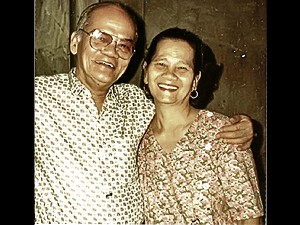Best 9-month income in firm’s 55-year history
By: Riza T. OlchondraPhilippine Daily Inquirer
2:10 am | Friday, October 28th, 2011
Philex Mining Corp. on Thursday said it posted P4.35 billion in net income for the first nine months of 2011 on the back of higher production and metal prices.
Philex, which is partly owned by Hong Kong’s First Pacific Co Ltd., said in a report that this was the highest nine-month profit in its 55-year history and was 106 percent higher than the P2.12 billion recorded a year ago.
Core net income stood at P3.98 billion, 72 percent up from last year’s P2.31 billion and the second highest in the company’s history for the nine month period, it said. This translates to core income per share of 81 centavos for the first nine months of 2011, up from 47 centavos a year ago.
Net income per share amounted to 88 centavos versus 43 centavos in the same period last year.
Consolidated revenue also posted the highest level thus far at P11.83 billion, up 37 percent from P8.63 billion a year ago.
Contributing 58 percent of this year’s revenue, gold sales amounted to P6.89 billion, which was 51 percent higher than the P4.57 billion recorded last year.
Accounting for 37 percent of total revenue, sales of copper rose by 17 percent to P4.41 billion from P3.76 billion in 2010. Revenue from silver, petroleum and coal likewise reported a 79-percent increase jump, hitting P532.6 million during, up from P296.8 million last year.
Philex said better ore grades and higher tonnage milled contributed to high metal production.
“Earnings would have been slightly higher were it not for the recent weakening in gold and copper prices which adversely affected the value of later shipments, with final prices falling in the last month of the third quarter,” said Manuel V. Pangilinan, Philex chairman and chief executive officer.
“Nevertheless, we continue to be optimistic that we would still see record earnings this year,” he said.
Philex said that an extraordinary gain of P523.7 million was reflected in the second quarter this year from the restatement of the company’s investment in Pitkin Petroleum Plc to fair value.
Revenue from petroleum, principally from Forum Energy Plc.—which is 64.5-percent controlled by Philex subsidiary Philex Petroleum Corp.—reached P385.8 million.
“The successful listing of Philex Petroleum in the second board of the Philippine Stock Exchange on September 12 this year was received warmly by the market. This was indeed a milestone for the company,” Pangilinan said.
“We can say now that we have achieved our objective of unlocking the value of Philex Petroleum and making its oil and coal assets more visible to investors,” he said.
“We are also progressing quite well over at the Silangan project which has been granted recently its certificate of registration by the Board of Investments to qualify for government incentives. Overall, we can say that, as we get nearer to the close of the year, it may be another excellent year for Philex,” Pangilinan added.
http://business.inquirer.net/27243/philex-posts-record-profit
 Metro
Pacific Investments Corp. (MPIC), the locally listed infrastructure
unit of Hong Kong-based First Pacific Co. Ltd., is spending P300 million
to acquire the operator of the Cardinal Santos Medical Center in San
Juan, Metro Manila, from an affiliate company.
Metro
Pacific Investments Corp. (MPIC), the locally listed infrastructure
unit of Hong Kong-based First Pacific Co. Ltd., is spending P300 million
to acquire the operator of the Cardinal Santos Medical Center in San
Juan, Metro Manila, from an affiliate company. IN
the post-World War II years, big business and the government used to
provide three of four jobs in many countries, according to business guru
Peter Drucker. No longer.
IN
the post-World War II years, big business and the government used to
provide three of four jobs in many countries, according to business guru
Peter Drucker. No longer.






